
1.請各位教職員生務必依照校方規定撰寫作者單位,以利申請校級論文獎勵金以及醫學科技學院論文獎勵金。(校級論文獎勵金申請資格請參照研發處規定辦理。) 2.院級論文獎勵金審查,未來如未依照校方規定撰寫作者單位,將取消該篇論文之獎勵金申請資格。(本審查規定經2020.07.27(一)1082醫科院第七次院務會議決議通過)

1.請各位教職員生務必依照校方規定撰寫作者單位,以利申請校級論文獎勵金以及醫學科技學院論文獎勵金。(校級論文獎勵金申請資格請參照研發處規定辦理。) 2.院級論文獎勵金審查,未來如未依照校方規定撰寫作者單位,將取消該篇論文之獎勵金申請資格。(本審查規定經2020.07.27(一)1082醫科院第七次院務會議決議通過)

7/3中午醫科院與預備升等的教師們針對爭議性期刊論文的討論會圓滿落幕,感謝參與的所有老師。討論會上和與會教師們達成升等論文計分共識,今年起會陸續新訂/增修本院升等審查條文並公告。其他教師升等規定,請依校方辦法為準則辦理。

依2023.07.03召開之醫科院爭議性期刊論文的討論會共識: 1.掠奪性期刊即日起一律禁止所有態樣使用/認列。 2.博士論文畢業條件與巨量期刊Mega Journal相關規範依校級會議決議執行: (A)舊生設立兩年緩衝期,兩年後發表於Mega Journal之論文將不得列為畢業論文。 (B)自112學年度起入學新生全面實施發表於Mega Journal之論文不得列為畢業論文,請各學院與新生充份溝通並於新生說明會宣導。

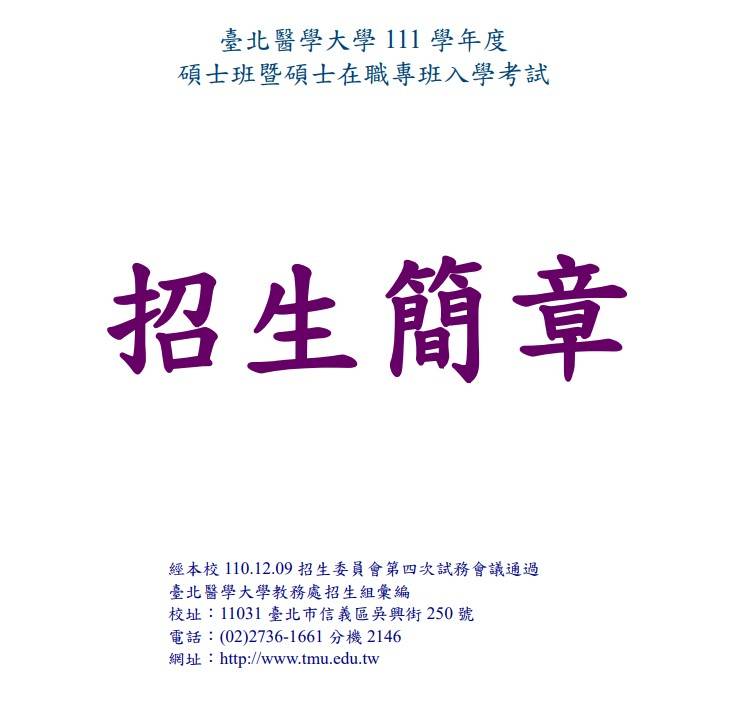
網路報名: 111.01.06(週四)09:00起~111.01.17(週一)18:00止 報名方式: 一律採網路報名(網路填表並上傳報名相關資料,報名流程請詳閱招生簡章說明),恕不受理現場報名。

系統開放時間自即日起至111.02.15(星期二)下午5時前止,為保障您的權益,請務必上網登錄五年內(2017.1.1至2020.12.31)研究成果資料,逾時該系統將自動關閉,您將無法進入登錄。
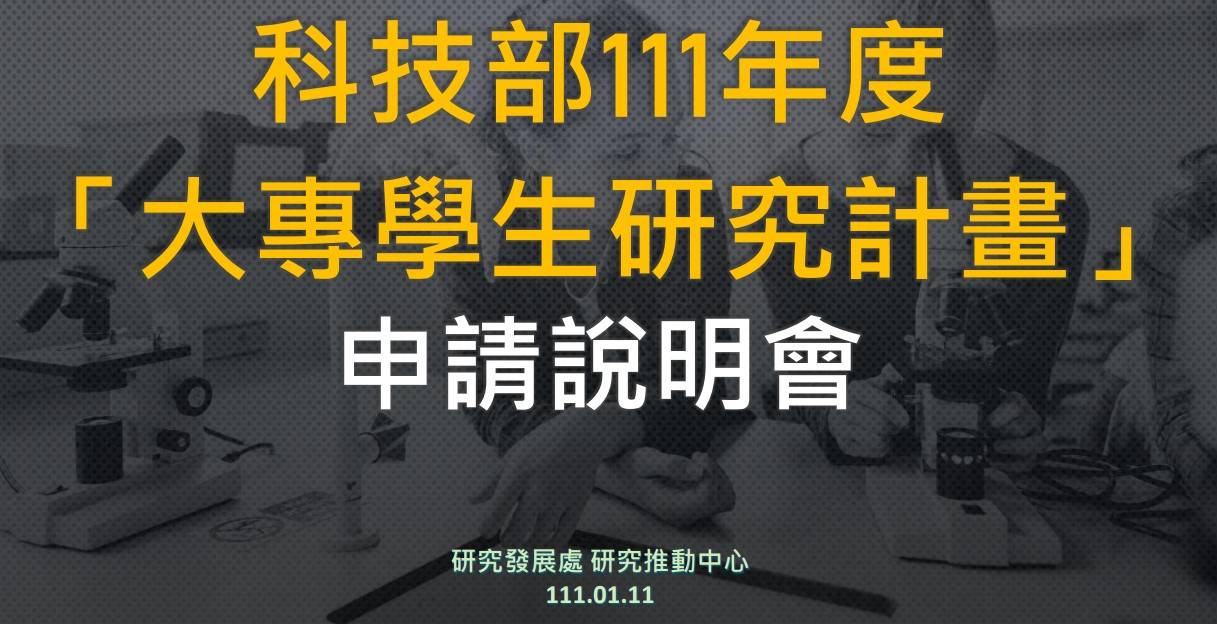
科技部111年度大專學生研究計畫申請案,自即日起接受申請,校內於111年02月10日(四)中午前受理學生線上申請,並請指導教授於111年02月17日(四) 中午前完成「指導教授初評意見表」之上傳並繳交送出。 為使您對線上申請操作步驟進一步瞭解,特此舉辦計畫申請說明會,歡迎踴躍報名參加。
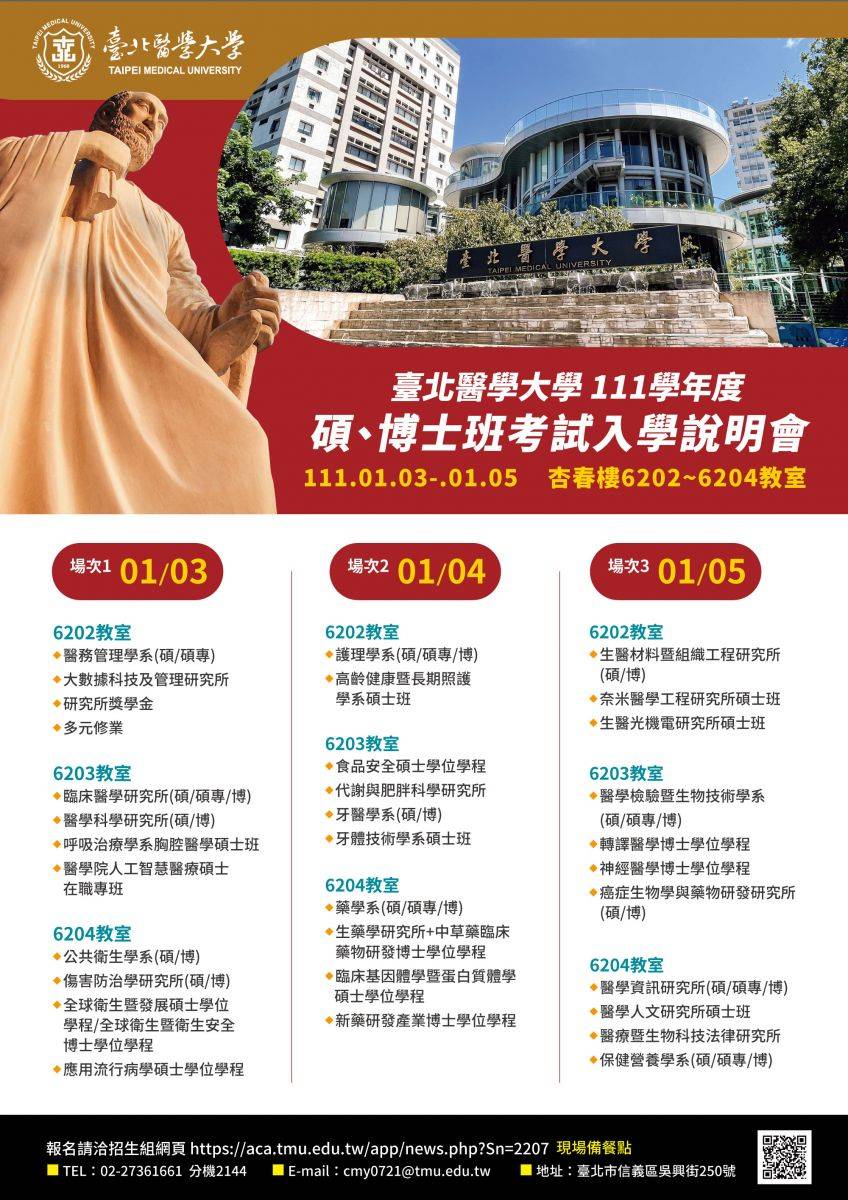
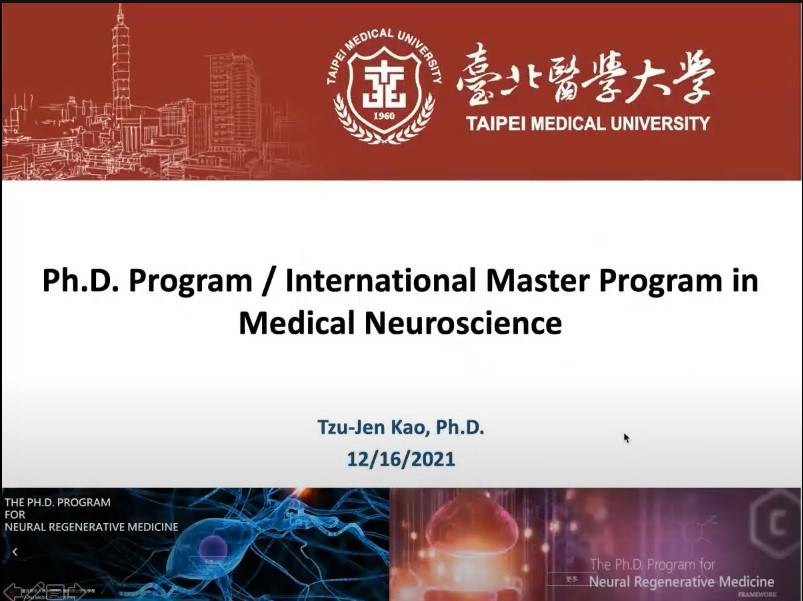
Neuroscience research has always been a competitive and popular field of study in biomedical science around the world. Being one of the prime research focuses, neuroscience research in TMU continues to develop vastly over the past few decades. In this session, we introduce you the Ph.D. Program, and the newly added Master Program, of Medical Neuroscience, including faculties with a variety of research interests, the offered courses with comprehensive coverage in neuroscience, and sufficient resources in all aspects. Our primary goal is to ensure the complete training of new talents in neuroscience research. Please join this session if you are interested in graduate study in neuroscience.
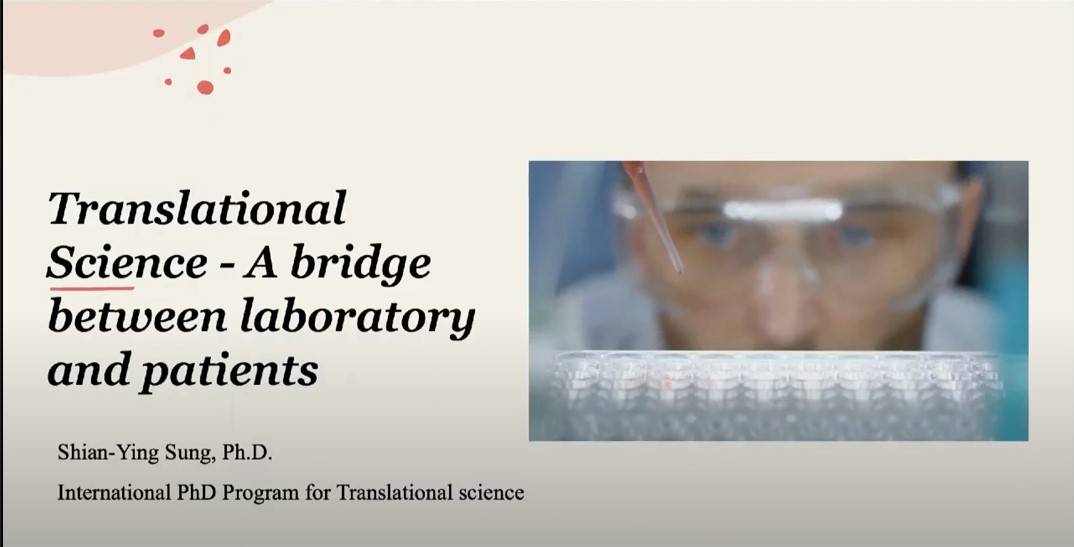
Translational medical research is a critical issue in recent biomedical research. However, most translational research was conducted in animal studies and confirmed by clinical samples without additional action. There are very few success stories of moving from bench to the bedside, specifically in the East Asian scientific society. The central concept of translational science is designed to move basic research into clinical care at the patient’s bedside and take the messages from the clinical application back into the research environment. However, the connection between basic research and clinical application involved many barriers, such as transgenic animal models for disease research, structure chemistry, PDX model for drug validation, bioinformatics, different background in disease mechanisms, therapeutic targets, and clinical trials, etc. To build a solid team for bridging between basic scientists and clinical healthcare experts, Taipei Medical University established the program for translational research. This program no longer focuses on his/her immediate research goal. We gather experts with various backgrounds, including experts in structural chemistry, biology, biochemistry, animal models, drug screening, antibody drugs and clinical trials. We built a research team and formulated into the department to establish the ability to use deductive logic to explain research results and build a super-highway for clinical trial and clinical practice. We welcome anyone interested in the research of biomedical entrepreneurs to join us in translational research.
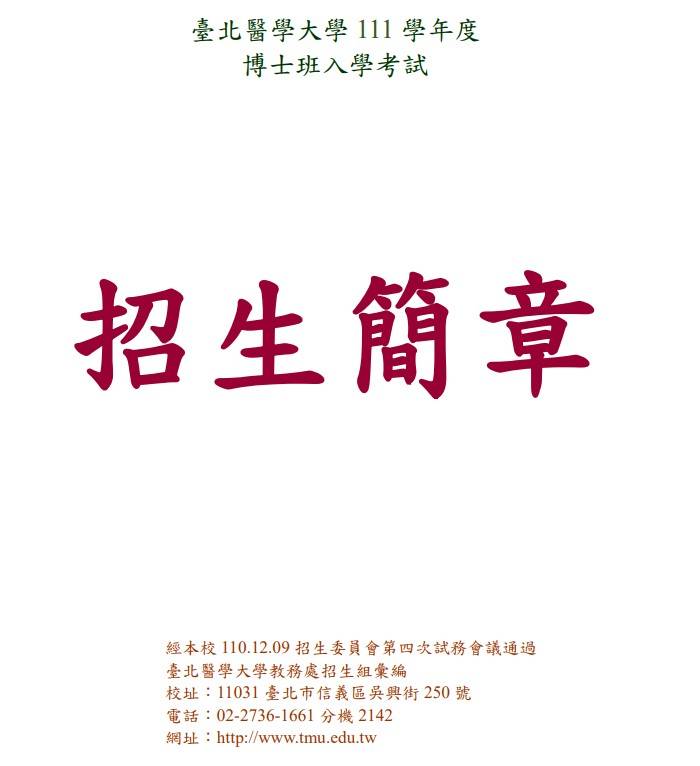
網路報名: 111.03.02(週三) 09:00~111.03.16(週三)18:00止 報名方式: 一律採網路報名(網路填表並上傳報名相關資料,報名流程請詳閱招生簡章說明),恕不受理現場報名。
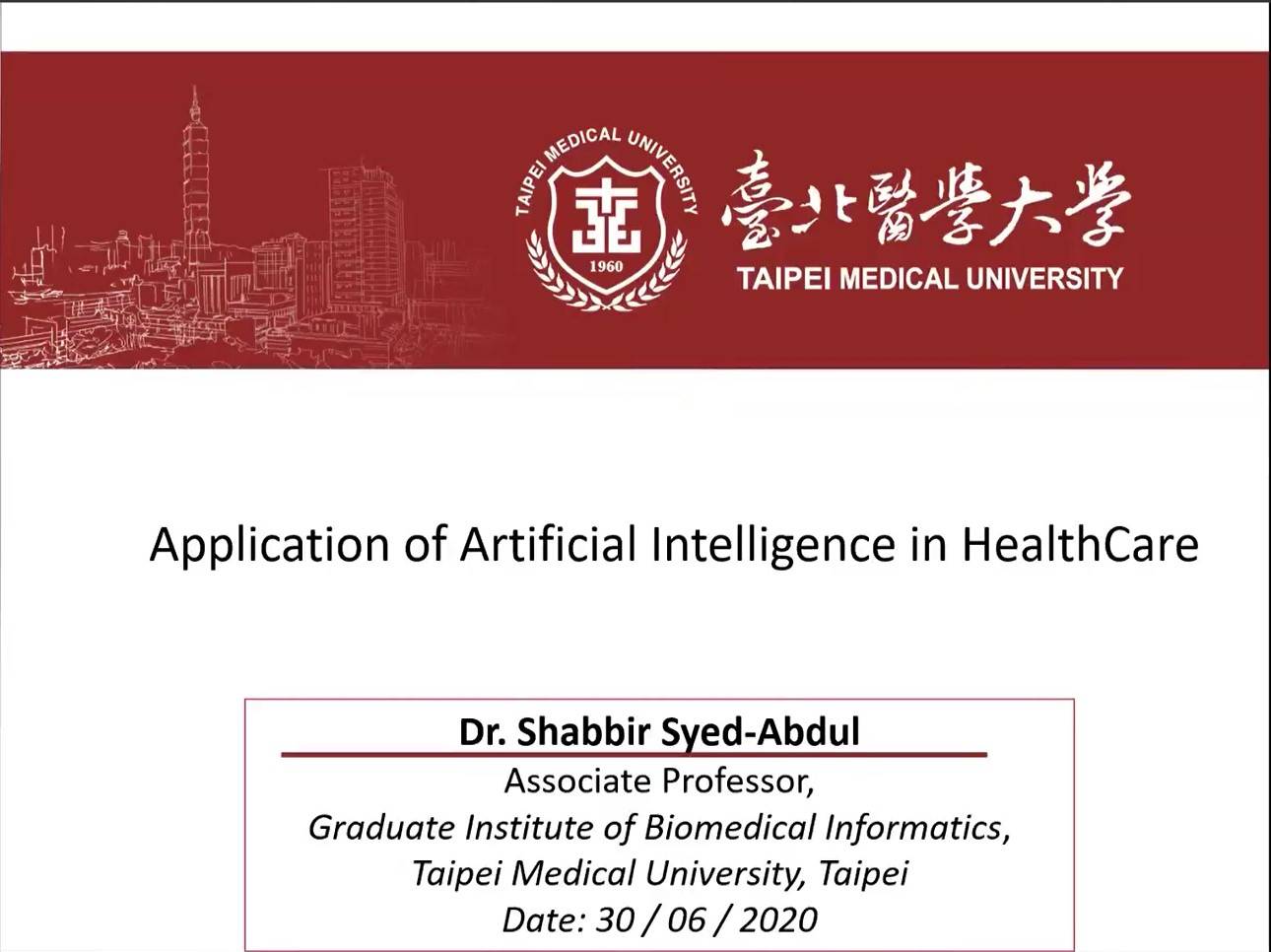
Artificial Intelligence of Things (AIoT) is the combination of artificial intelligence and internet of things (IoT), and has opened a wide range of opportunities for healthcare advancements. Wearable devices, non-contact sensors, m-health technologies are some examples of IoT which when connected to the internet can collect valuable medical data. This data can provide insights about the symptoms, the patterns and variations, enable remote care and monitoring, and encourage participatory health care among the patients. Research has focused on the IoT devices, and how they can be used to monitor health parameters and detect health conditions. Non-contact sensors are gaining popularity in clinical settings for monitoring the vital parameters of patients. Application of artificial intelligence (AI) algorithms on the data collected from IoT devices can help in prediction, early detection, and better management of diseases. These models could assist healthcare professionals in decision making and formulating better care plans for patients. Thus, artificial intelligence has a wide range of applications for healthcare data from IoT devices.
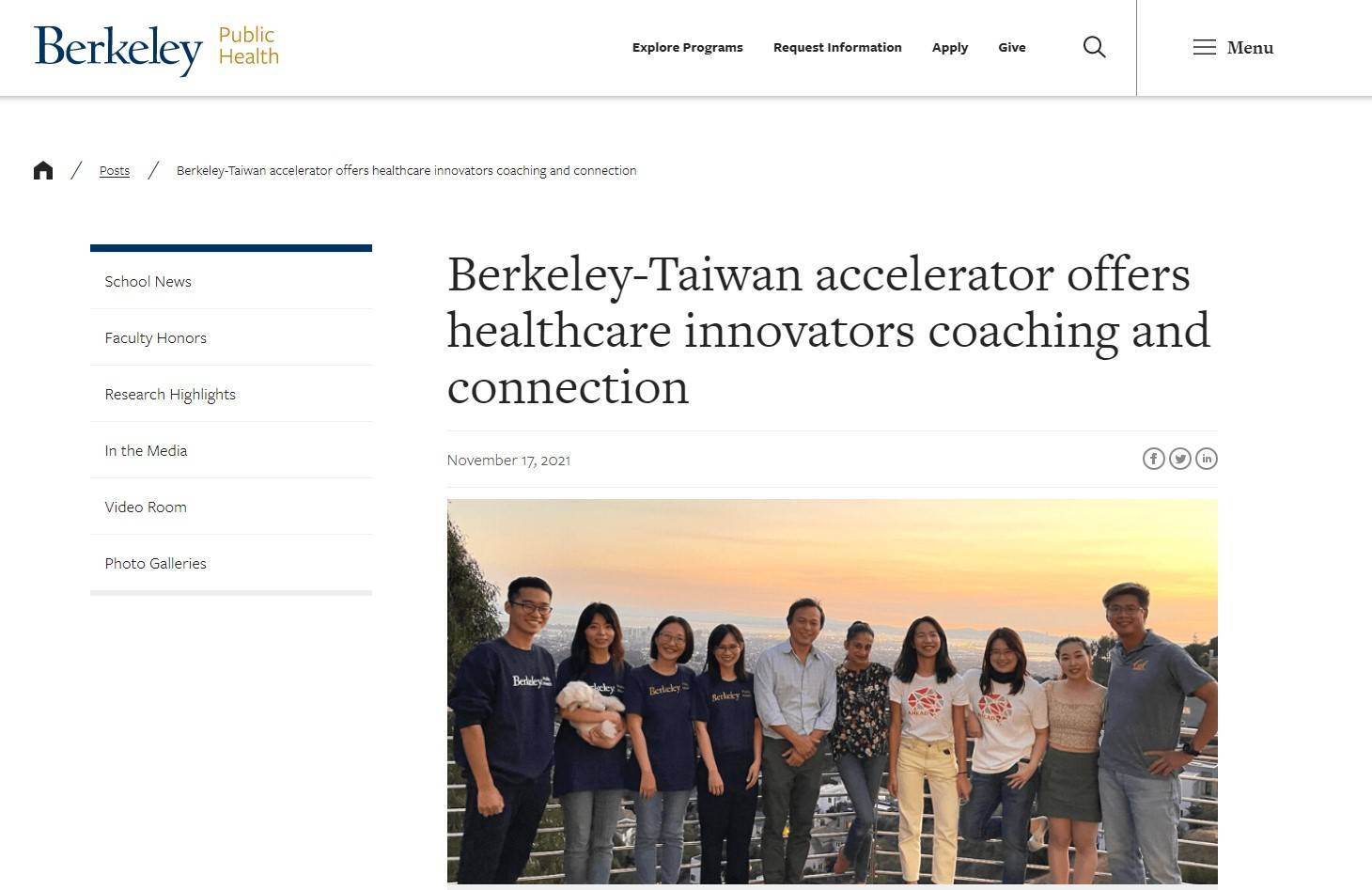
This August, six representatives from three Taiwanese medical technology startups traveled to Berkeley for three months of intense coaching, training, and networking as part of UC Berkeley School of Public Health’s newly launched Taiwan-Berkeley Health Innovation Accelerator.
Taipei Medical University (TMU) offers a trio of d ...
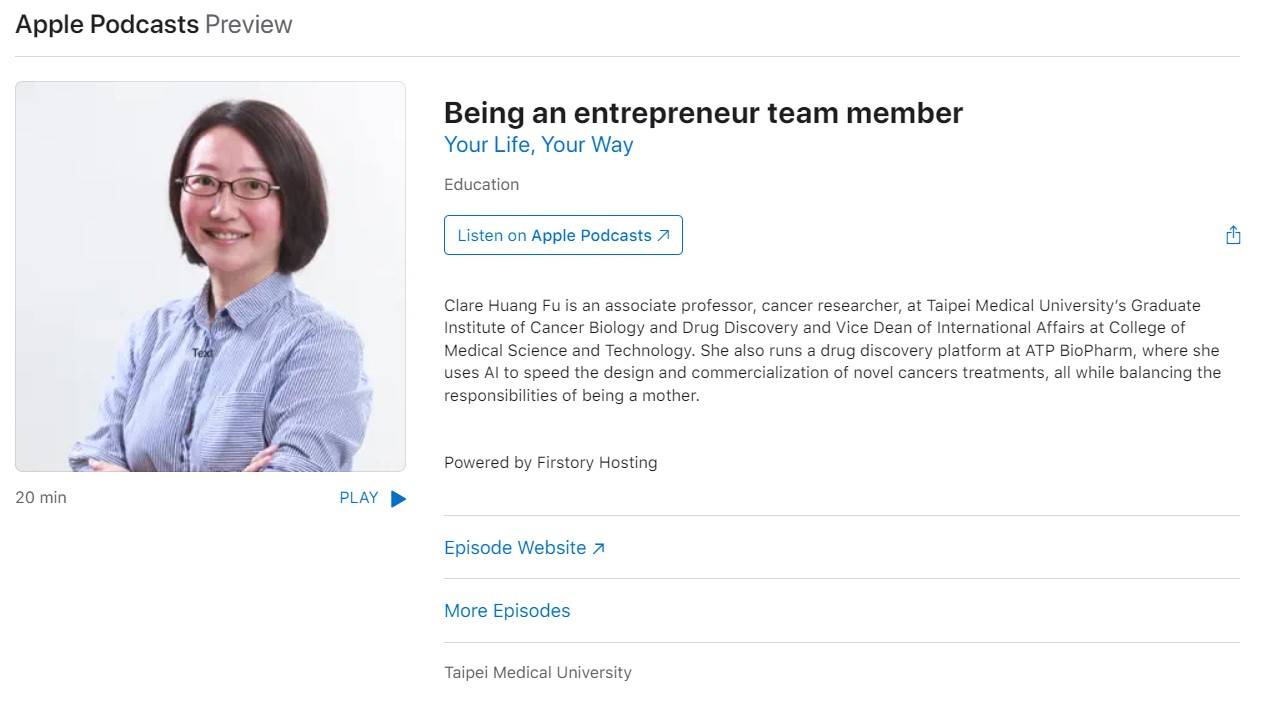
Clare Huang Fu is an associate professor, cancer r ...

Translational medical research is a critical issue ...

Neuroscience research has always been a competitiv ...

Artificial Intelligence of Things (AIoT) is the co ...